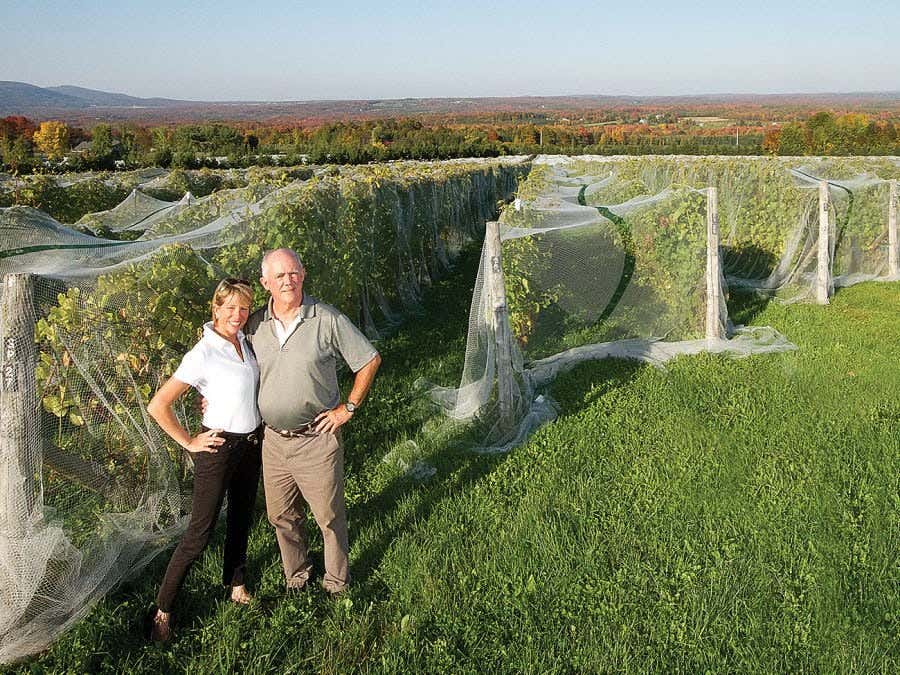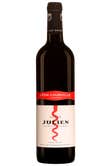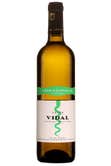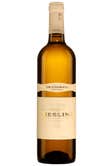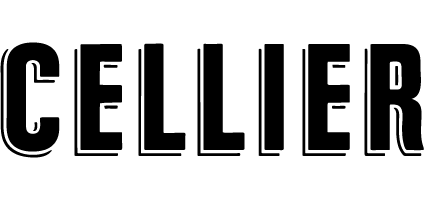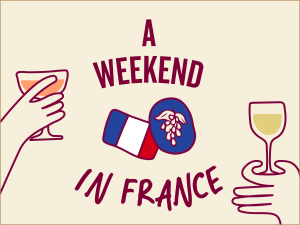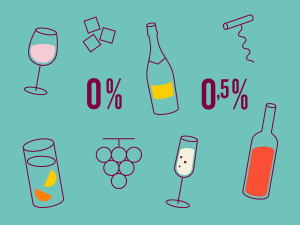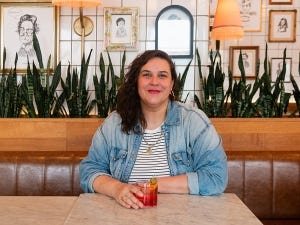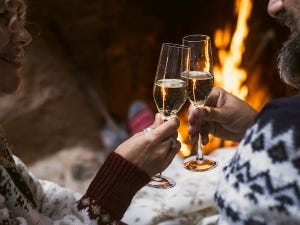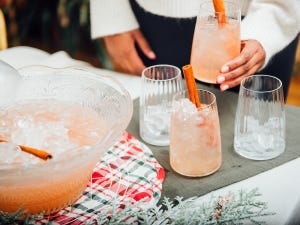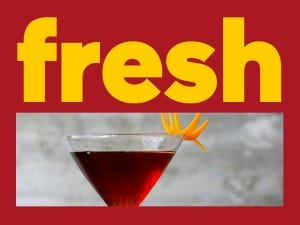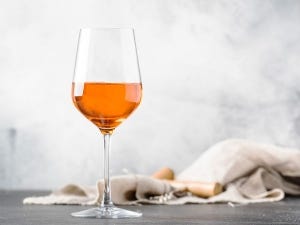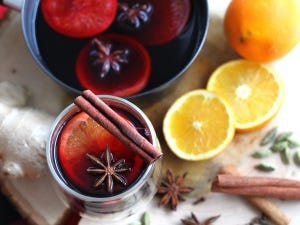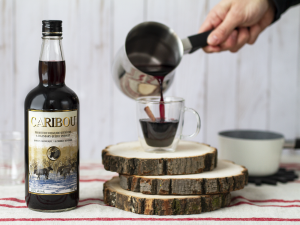A great adventure
A look at Domaine Les Brome, and on the journey that has truly elevated the couple of Léon Courville and Anne-Marie Lemire among the best wine producers here.
The project was born in 1995, after the economist (who was president of Banque Nationale and university professor) decided to retire... only to find out that he’s never worked so much in his life! "It's 24 hours a day!" he said, under the amused eye of his partner Anne-Marie, who joined him in 2005 to oversee the marketing of the wines.
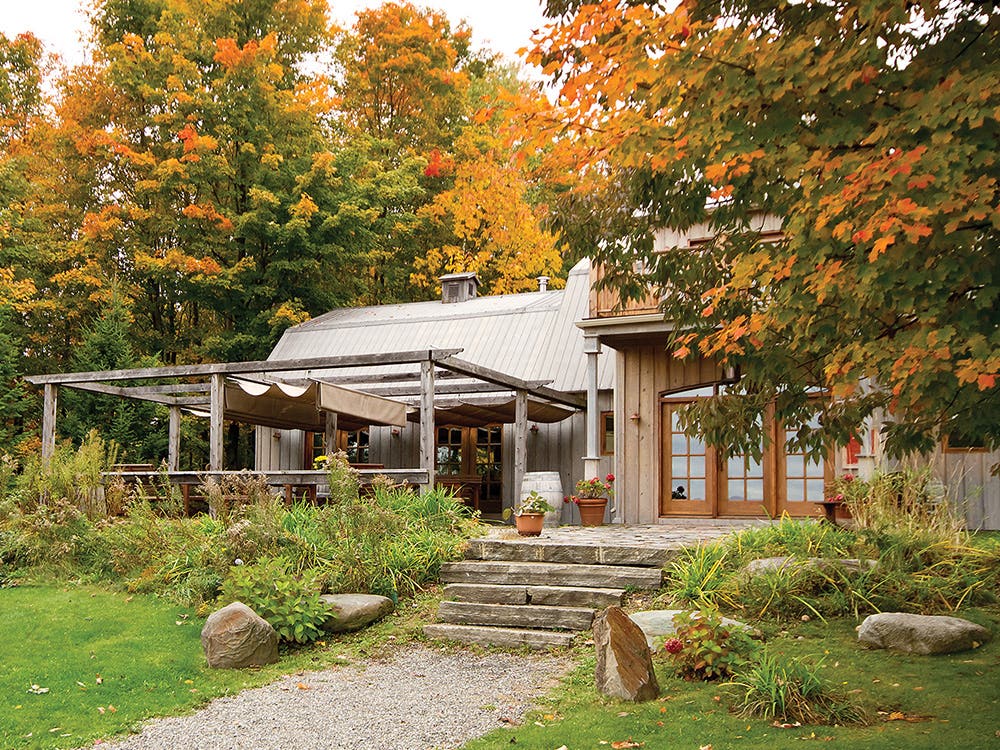

Domaine Les Brome now produces some 80,000 bottles of wine annually.
A happy coincidence
Courville had always possessed an entrepreneurial streak that his previous professional life had failed to ignite. Plus, the passion was fuelled by a “convergence of unexpected happenstances.” A collector (of wines and corkscrews) and a speculator keen on blind tastings, he had stumbled upon this grossly neglected 45-acre property the day after a personal breakup and Quebec’s first referendum. A fresh start was in the cards and the prospect pleased him.
Proven grape varieties
He began planting grapes in the early 2000s, but not just any grapes. At the time, he went for varieties that had already been tested in the area, like Vidal, Seyval Blanc, Maréchal Foch, St-Pépin, De Chaunac, Baco and Riesling.
After 15 more years of activity and many trial-and-error situations that at times cost them dearly – like that French Pinot Noir they were forced to rip out – the couple was able to declare victory: The magnificent 18-acre estate now produces some 80,000 bottles annually of about 15 wines – white, red, rosé, ice, late-harvest and sparkling, several of which have received critical acclaim. From the beginning, they had in mind to make wines of superior quality. All winemakers will say the same thing, but they did not want them to aim for anything less than excellence.
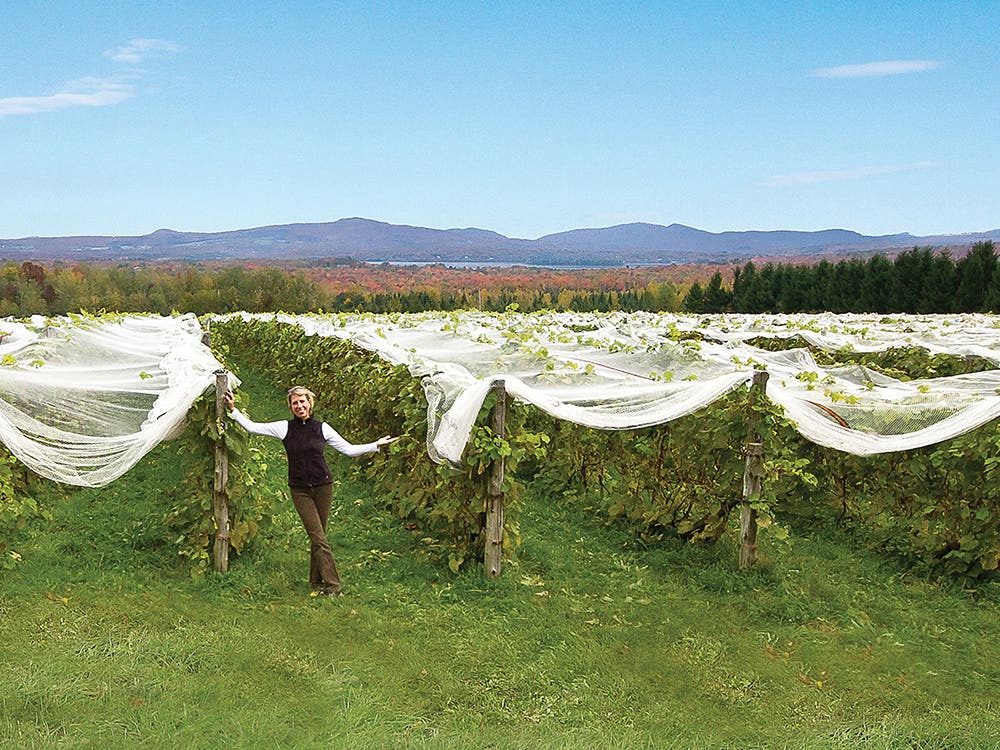

Perpetual innovation
Propelled into the world of viticulture by their love of nature (and for each other), these two intriguing intellectuals did their own research and taught themselves to vinify grapes. Winemaking experts lent a helping hand along the way. “We urged these experts to be innovative,” Lemire says. That’s how they developed a celebrated red cuvée called XP (for “experience”) with its flavours of ripe plum, and brought to fruition according to the Italian passito method. De Chaunac grapes are harvested early in the fall, dried for a few weeks, then vinified and put in barrels. The powerful St-Pépin variety was another winner, encouraging them to continue experimenting.
Crowned with a well-deserved success, the wines of Domaine Les Brome have nothing to envy worthy cuvées of other wine regions of the world. Times have changed and prejudices about local wines are dissipating. Local products are increasingly recognized and we are approaching the ultimate goal we all hope for: To recognize their worth! And in the pursuit of this goal, Léon Courville will certainly remain engraved in our memories for having made his unique contribution.
- Bonus 500 pts

 Léon Courville Vigneron Cuvée Détente 2023 Rosé | 750 ml Canada , Quebec
Léon Courville Vigneron Cuvée Détente 2023 Rosé | 750 ml Canada , Quebec Regular Price $16.50 Special Price $15.50Not available Online Available In store
Regular Price $16.50 Special Price $15.50Not available Online Available In store
-
Inspiration
(810)
- Profiles (201)
- Interviews (85)
- Share (325)
- Trends (67)
- Tasting and service (51)
- Production methods (21)
- Conservation (5)
- Wine cultivation (27)
- Pairings and Taste Tags (26)
- The SAQ is here (53)
-
About us
(73)
- Press releases (60)
- Career (5)
- Clarifications (8)
- Sustainable development (21)
 Access to SAQ Inspire personalized services and store inventories are unavailable at the moment.
Access to SAQ Inspire personalized services and store inventories are unavailable at the moment. Free in-store delivery with purchases of $75+ in an estimated 3 to 5 business days.
Free in-store delivery with purchases of $75+ in an estimated 3 to 5 business days. 
